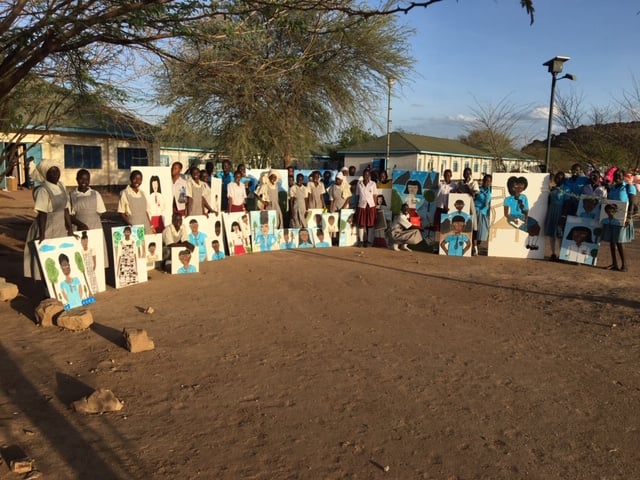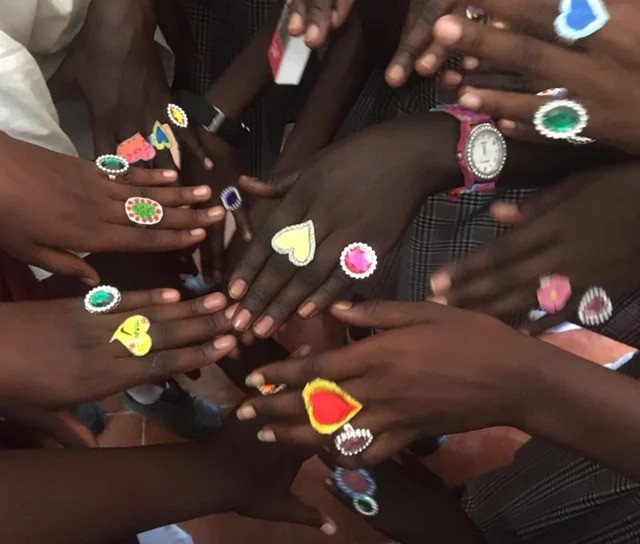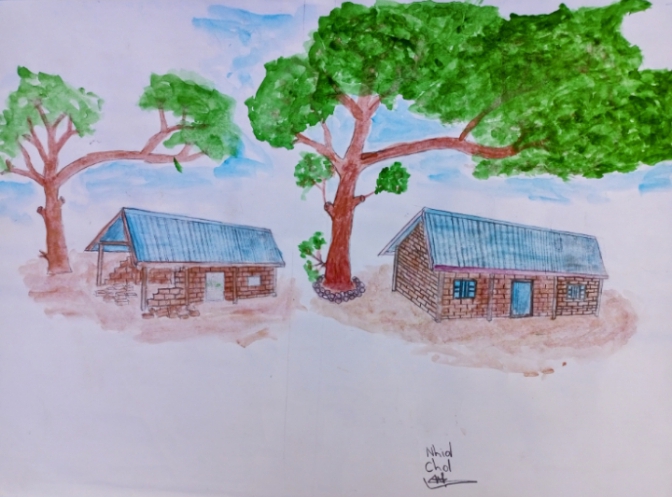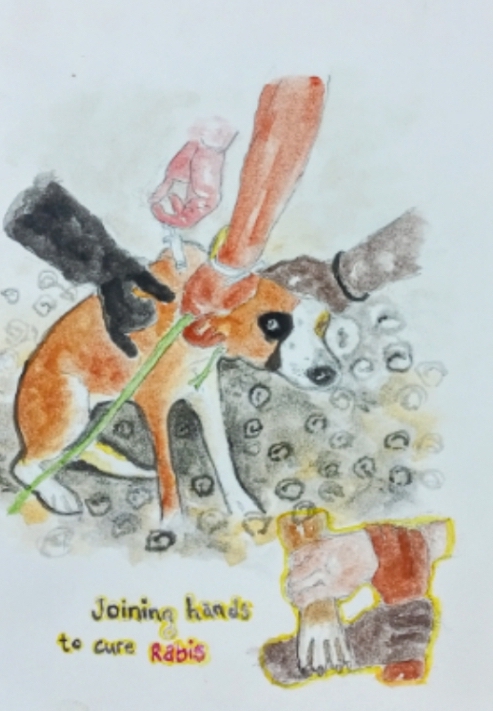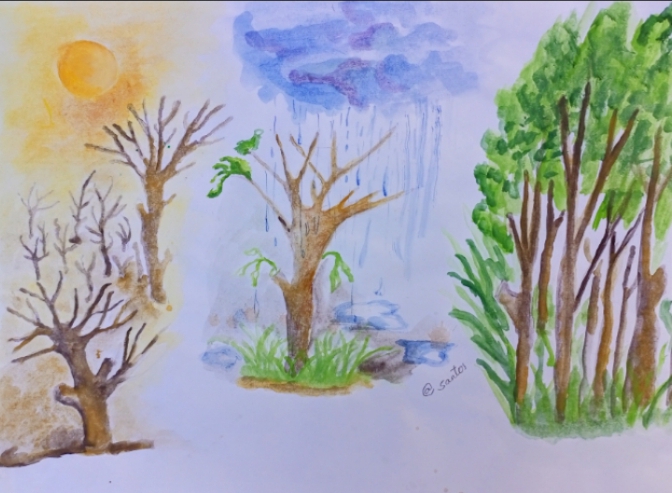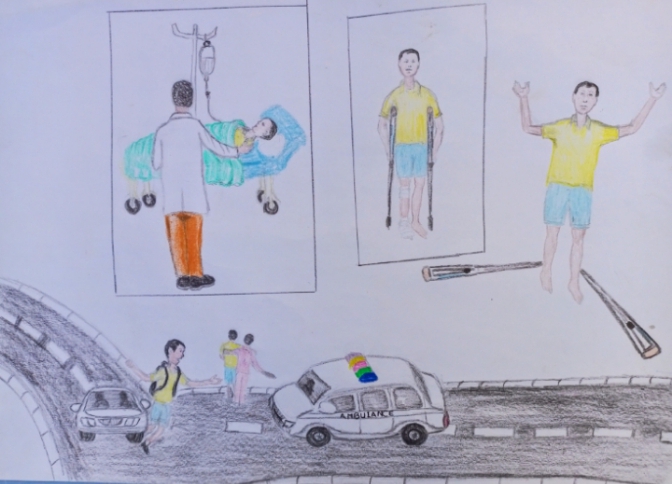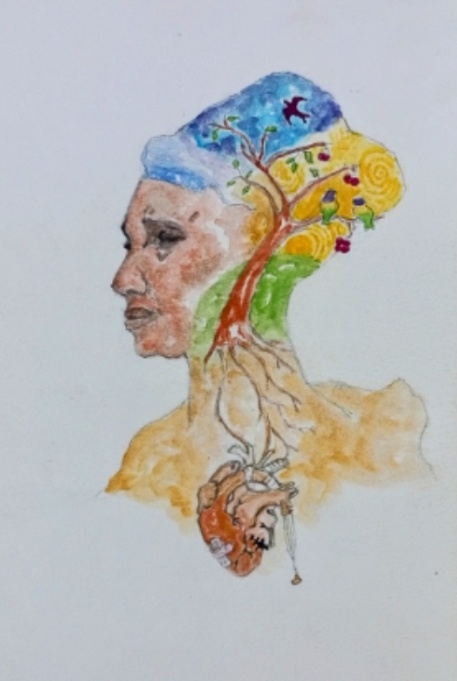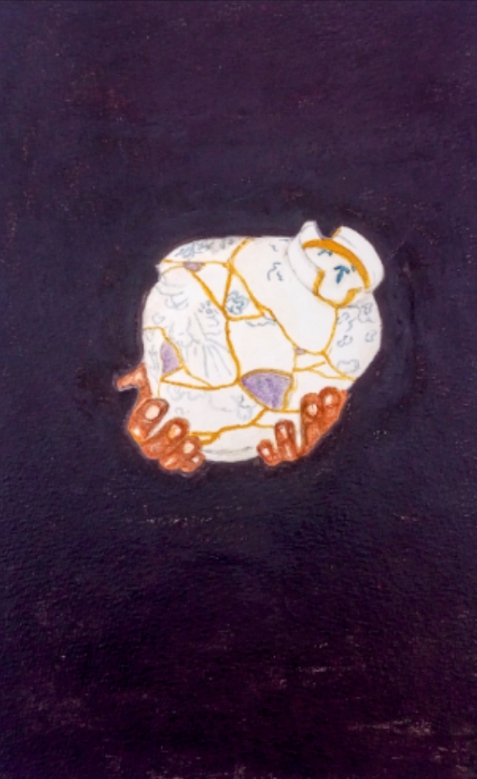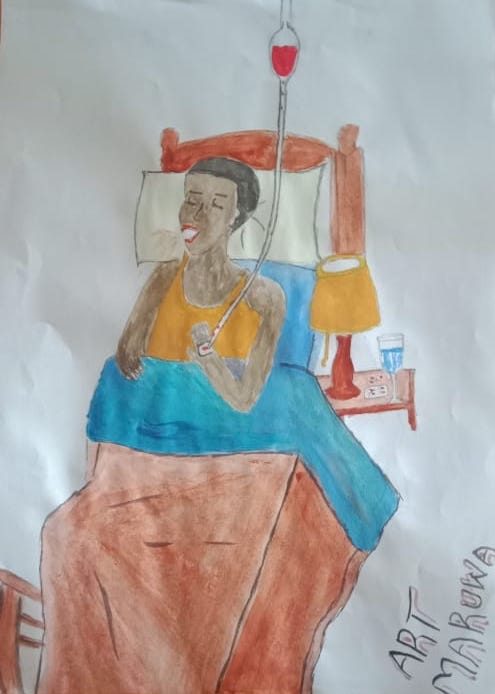Developing creativity and confidence: Meet the people delivering art workshops in Kakuma Camp
Developing creativity and confidence: Meet the people delivering art workshops in Kakuma Camp

HOAW students working on ‘Group Portrait’ at Angelina Jolie Primary School 2019
The most rewarding thing about my work? The small things that put a smile of someone’s face, sometimes it’s just listening to someone.
Joyhlynn Maraka, known as Joy, has been supporting Hands On Art Workshops for primary and secondary school students in Kakuma Camp, Kenya since 2018 when she joined UNHCR’s Education Unit. She will be spending Refugee Week in the UK, sharing her experiences and meeting others involved in the arts programme.
Hands On Art Workshops was initiated by Lisa Milroy, a London based artist, academic and lecturer, with the support of Vodafone Foundation and UNHCR, the UN Refugee Agency in 2015. The sessions encourage participants to develop their artistic skills and share their creative ideas.
Although Lisa regularly visits Kakuma Refugee Camp, since the pandemic, many of the art workshops have been delivered through mobile phone messaging in tandem with the usual use of online video conference.
When asked about her motivations, Lisa told us, “as an artist who is also engaged in art education – teaching in various roles over the years – I wanted to explore how technology can make a live connection between artists and students as a contribution to art education initiatives around the world.”
Together with Stephanie Nebbia, artist, Co-director of Hands On Workshops and Resident artist Global Fine Art Collective manager at Colart, she will be welcoming Joy to London over Refugee Week.
Ahead of her arrival we spoke to Joy, Lisa and Stephanie about their roles, their plans for London and their thoughts on how art relates to healing, the theme of this years’ Refugee Week.
Tell us about your role in Kakuma Camp
Joy: Kakuma refugee camp is vibrant with a lot of youths doing many amazing things, including innovation and business. Hands On Art Workshops offers a program of practical art workshops to primary and secondary school students in Art Clubs in Kakuma as an extra curriculum activity outside class lessons. The Art Clubs run a few days a week in schools and on Saturdays at Maggie’s Tent at Fashoda Primary School. The art workshops at Maggie’s Tent are led by a Hands On Coach.
The art activities at Maggie’s came about when the schools were closed for close to one year due to the Covid-19 pandemic. These workshops engaged the children during that difficult period. My role is to oversee and support the Hands On Coach.
What is the most challenging thing about your work?
Joy: Being away from family, Kakuma is non-family duty station.
Lisa: The days are too short!
Stephanie: Lack of time to immerse in it.
How will you be spending Refugee Week?
Lisa: We’ve invited Joy to join us in London for World Refugee Week and look forward to welcoming her! The visit is an educational and cultural initiative. We’ve set up a programme of meetings and events throughout the week taking place with our partners UNHCR, Colart, the Slade School of Fine Art, UCL and Vodafone Foundation to present Hands On Art Workshops to people new to the programme, and explore and exchange ideas on its future development in Kakuma Refugee Camp, and beyond.
Joy: I am looking forward to meeting partners to discuss, explore and exchange ideas on future developments of Hands On Art Workshops in Kakuma refugee camp.
Stephanie: I’m looking forward to showing Joy around to see the work installed at Colart created by the students, and to show the Elephant gallery space where the Hands On Exhibition was held.
The theme of Refugee Week this year is healing – do you think that art has the power to heal?
Lisa: Art stirs things up! And through this stirring up, all sorts of different outcomes can occur – so through an imaginative encounter with art, someone may feel comforted, or look for, or experience a kind of healing or solace. Art can lead people to heal themselves. When I make my paintings, I feel that at some deep level I’m knitting myself together – this ‘knitting’ is a complex web of mental and emotional processes difficult to describe but within it, I feel that I’m also healing my grief.
Stephanie: I do, through seeing it or making it, it helps us see beauty in the world and to connect which creates a sense of belonging to one another and with the world
Joy: Absolutely! In 2020 when the pandemic was at its peak, UNHCR rolled out ‘Youth with Refugees‘ Art Contest. The theme was “everyone counts in the fight against the virus, including refugees.” We had 18 submissions from Kakuma refugee camp through Hands On, and although none of them was among the 7 global winners their art had same message in different forms. Art has the power to heal. Some people use art to heal from traumatic experiences.
Joy, Lisa and Stephanie will be visiting UNHCR UK during Refugee Week to share their experiences, their work and talk to staff about the workshops, the artwork the students have produced and their plans for the future.
The project promises to grow from strength to strength as they explain their ambitions for growing and diversifying the community of artists involved, supporting Hands On educational initiatives, such as the annual scholarship covering secondary school tuition for a primary school graduate in Kakuma Refugee Camp, and developing stronger links with professional artists local to Kakuma.
The programme currently supports seven schools in the camp through Colart’s donation of art materials. There are plans to extend this to support more schools and students in the coming years, facilitated by the Hands On Coach.
Refugee Week runs from June 20 – 26. You can explore the events and find out how to get involved on the Refugee Week website.



